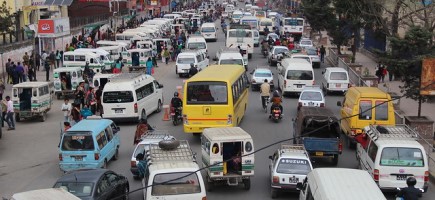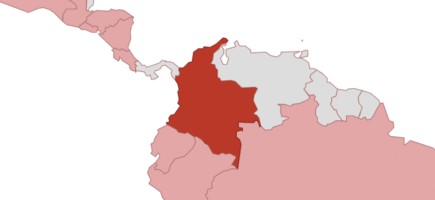Expanding climate-friendly and inclusive urban mobility
ProMOVIS II - Dekarbonisierung der städtischen Mobilität in Kolumbien
-
Client
German Federal Ministry for Economic Cooperation and Development (BMZ)
-
Country
-
Political sponsors
More
-
Runtime
2025 to 2028
-
Involved
Ministerio de Transporte
-
Products and expertise
Sustainable infrastructure: water, energy and transport
Context
Colombia aims to more than halve its greenhouse gas (GHG) emissions by 2030, with transport being a major contributor. Around 82 per cent of the country’s population live in urban areas. So, Colombian cities play a key role in reducing emissions, but face considerable challenges in improving mobility in an environmentally friendly way. Accomplishing this would not only lower GHG emissions but also make cities more competitive and liveable.
However, integrated, low-carbon public mobility solutions are lacking. High debt, economic inefficiency, low digitalisation and insufficient data are hindering the modernisation of public transport, which disproportionally affects vulnerable population groups such as women, migrants and people with disabilities.
Objective
Public transport in selected Colombian cities is more integrated, inclusive and environmentally friendly. This helps mitigate climate change, consolidates social justice and creates green jobs.
Approach
The project is working with the Colombian Government, cities, transport authorities and the private sector in the greater Cali area to develop technical, planning and organisational solutions for integrated and inclusive public transport. For example, this includes a study on integrating urban transit systems with surrounding municipal bus services.
The project is developing financing models with national and international institutions, and exploring alternative sources of urban transport finance, such as the taxation of land value gains.
It uses participatory and digital platforms to promote dialogue between cities, and enhance capacities for climate-friendly urban mobility in public administrations and companies.
Last updated: January 2025









